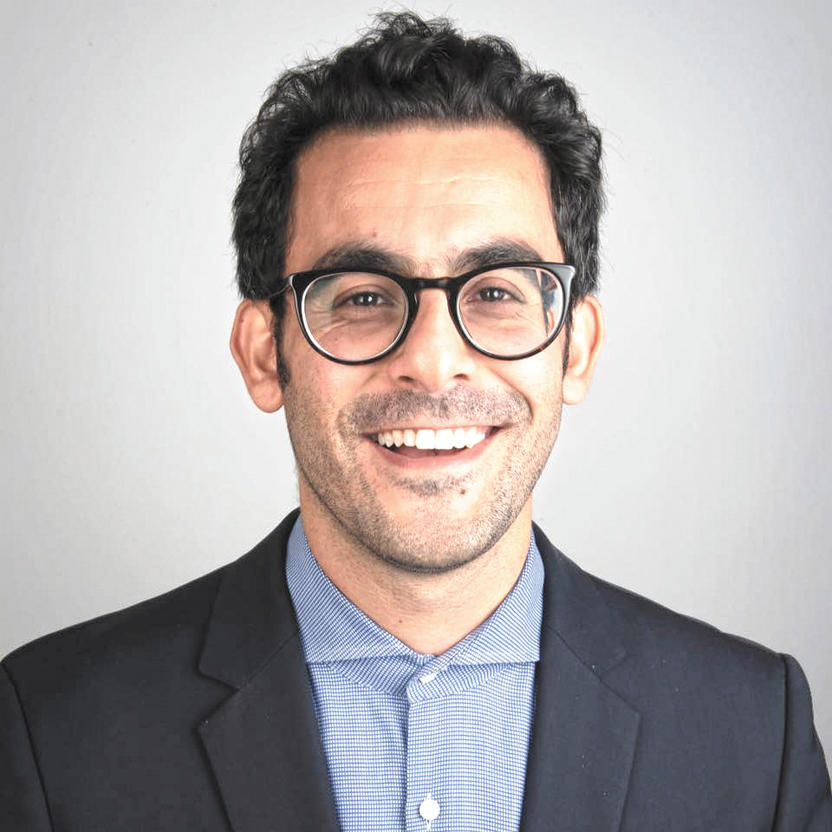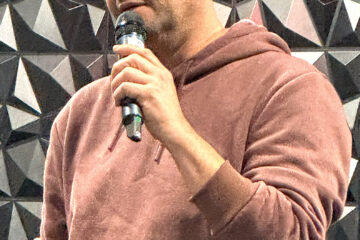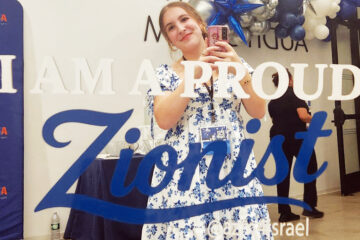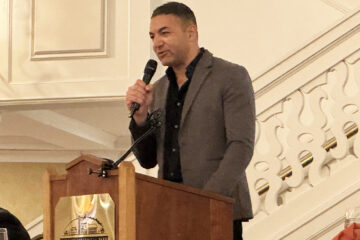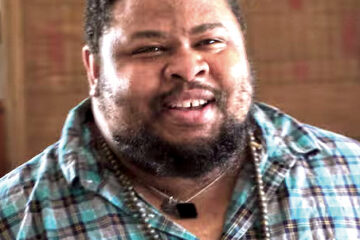‘Forward, Yousef’
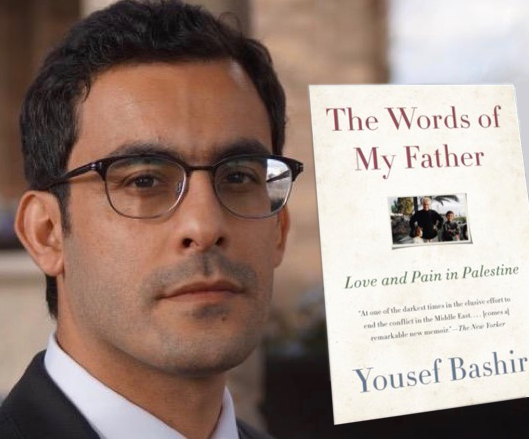
Forgiveness is the first step toward reconciliation.
By Yousef Bashir, Brandeis Magazine
I was born and raised in the Gaza Strip. For years, Israeli soldiers based in Kfar Darom were my “neighbors.” Although the soldiers’ settlement was illegally established on my father’s land, he never gave me any reason to feel hostile toward them. “We are all the children of Abraham,” he would declare. From 1995 to 2000, these soldiers went about their own business. They never threatened my family members’ lives.
Then one night after dinner, the walls of our home were breached by the soldiers’ bullets. As my brother shut off the kitchen lights, bullets hit the wall right in front of me.
We crawled to the living room, in the center of our house, where we were the safest. In the morning, soldiers came to our home and told my father it was time for him to leave. It was no longer safe for us to live there, they said. My father replied that he was not going anywhere, that he was a peaceful man, that he should not be asked to leave his home and his land.
From then on, soldiers occupied our second and third floors, and our rooftop. We were not allowed to go above our first floor or into the backyard. Anyone who broke the rules would get shot, the soldiers told us. My father did not try to stop what was happening. He gave up his freedom in his own house, because he thought this might allow him to keep his house once the soldiers left. Every night, the soldiers came downstairs and locked us into the living room. Sometimes, we were locked in for days, even weeks. A soldier came with us every time we needed to use the bathroom or go to the kitchen.
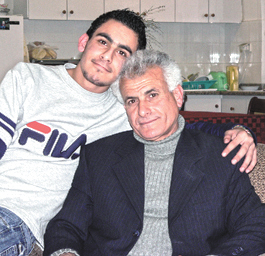
My house was no longer my home. Yet my father was still living life as though nothing had changed. His attitude drove the soldiers — and his family — crazy. No one really understood him or his belief in peace. The soldiers repaid his calm with growing aggression toward him and the 11 members of our family. They wanted us to leave, but my father kept declining their demands. They offered him money. They beat him. They destroyed his farms and everything he had. Still, he refused to leave.
But he also refused to hate — that would have been the ultimate defeat. I remember hearing a soldier ask my father, “Why don’t you leave this house?” My father, in his beautiful voice, responded, “Why don’t you leave my house?” By that point, the conflict taking place inside our living room had become part of my childhood.
The soldiers continued to harass my father, yet they never came close to breaking his resolve until Feb. 18, 2004, when an anonymous soldier shot me in the spine, in front of my father and three U.N. officers who were visiting the house. I had just turned 15. When I saw the tears in my father’s eyes, I wondered if they had finally gotten to him.
My father kept telling me I was not going to die. I apologized for my low grades (at the time, playing soccer and games was more important to me than speaking English or reading the books he bought for me). As I began to feel the bullet more intensely, my father begged me not to close my eyes. I focused on looking at the blue sky until we got to the hospital.
At the hospital, I overheard people say I might never walk again. I was paralyzed, and the hospital lacked the resources to treat someone with an M16 bullet in his spine. So I was transferred from Gaza to a hospital in Israel. My father was permitted to accompany me.
A few days earlier, I had been shot by an Israeli soldier. Now I was being saved by Israeli doctors.
While I was in the hospital, my father talked to me about many different subjects, and I listened deeply. He told me I was going to have a big future and I was going to make him proud. He said, “A new door just opened for you.” Paralyzed, trapped in my hospital bed, I felt incredibly frustrated. I didn’t understand what he meant by “a new door.” Sometimes, I’d start screaming and tell him to get out. Now I know he was right.
After four months, the doctors transferred me to Shikum Yiladem, a rehabilitation center. I was in a department with 12 Israeli kids. We were all in wheelchairs, and we were all together. The Israeli kids felt comfortable around me even after they learned what had happened. And I learned to walk again, which I consider my biggest achievement.
Eventually, I returned to my home in Gaza. The soldiers were still there. They would look away whenever I looked them straight in the eye. I think I scared them more than they scared me. Their guns no longer frightened me. I thought to myself, “If you want to get rid of me, you will have to shoot me twice next time, but you will do that only if you are truly lost. I am back in my house. Sooner or later, you will leave me and my family in peace.”
In 2006, I was accepted to Wasatch Academy, a college-prep boarding school in Utah. I left Gaza around the time the Israeli army began to unilaterally withdraw from the Strip. After the last group of soldiers left our home, my father ran upstairs for the first time in years. He raised his hands and declared, “I told you we were going to get the house back.”
That’s when I fully came to terms with his philosophy. He saved not only our home but his humanity, resolve, and dignity. Now his dream was to live to see an end to the conflict.
As he drove me to the Egyptian border so I could travel to the States, he said, “Forward, Yousef.” That was the last time I saw him. He died in 2009, on his birthday.
I relive my childhood experiences every day. I believe people everywhere can benefit from my story and, most important, from my father’s wisdom. Good things and good men like my father do exist in places that are filled with warfare and hatred.
Forgiveness must start with you, my father taught me. Although forgiveness can be inexpressibly hard, writing my memoir, The Words of My Father, has been a good place to start. I will not see my son get shot in front of me. I will not stop dreaming of a true end to our disputes and conflicts. I will feel truly human only when I see war die and crumble before my eyes.
I know I will see my father again, and I must have something to show him. I hope to make him proud.
Yousef Bashir is the author of The Words of My Father: Love and Pain in Palestine. A resident of Washington, D.C., he is a Gather Fellow at Seeds of Peace and a former member of the Palestinian diplomatic delegation to the United States. Bashir received his master’s degree in conflict and coexistence from Brandeis University.
The JCC Cultural Arts & Book Series presents Yousef Bashir via Zoom, 7 p.m., Tuesday, Nov. 10. Free. Register here.
To read the complete November 2020 Dayton Jewish Observer, click here.


